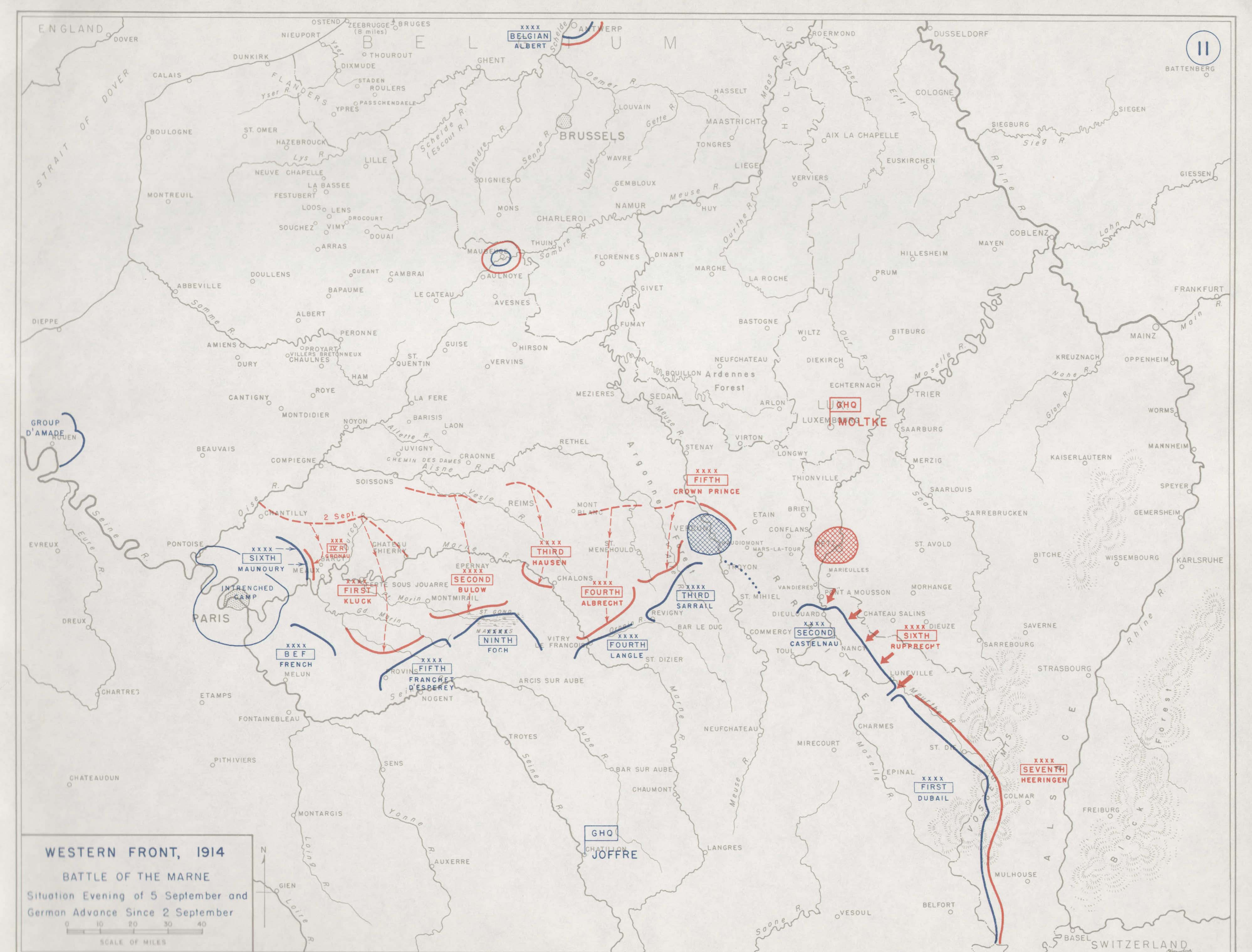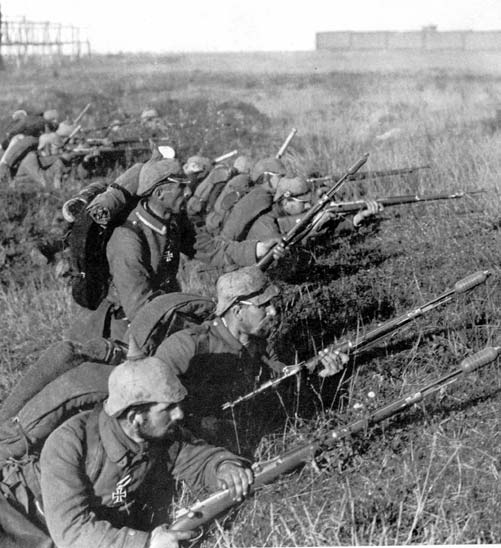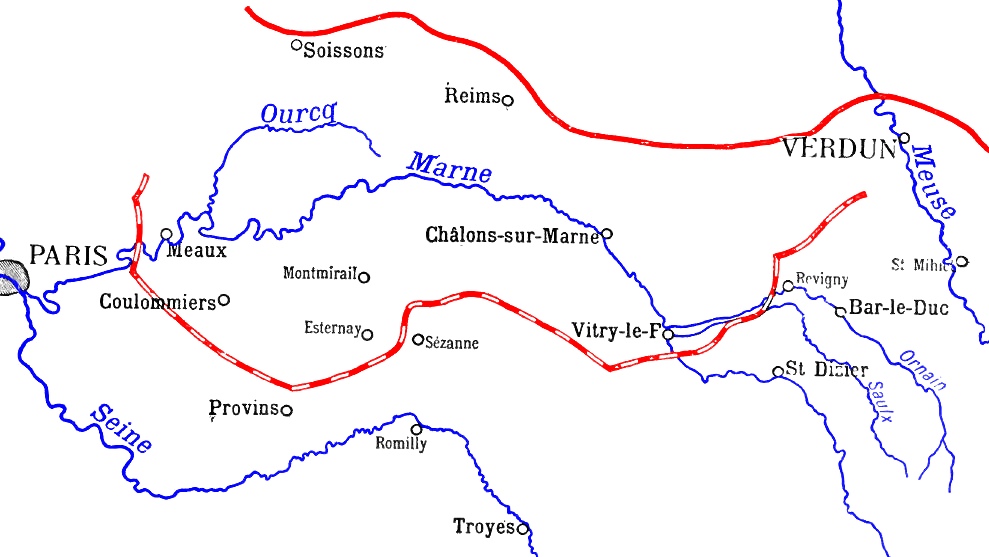Late on 4 September, Joffre ordered the Sixth Army to attack eastwards over the Ourcq towards Château Thierry as the BEF advanced towards Montmirail, and the Fifth Army attacked northwards with its right flank protected by the Ninth Army along the St. Gond marshes. On 5 September, the
Battle of the Ourcq commenced when the Sixth Army advanced eastwards from Paris. That morning it came into contact with cavalry patrols of the
IV Reserve Corps of General
Hans von Gronau, on the right flank of the 1st Army west of the Ourcq River. Seizing the initiative in the early afternoon, the two divisions of IV Reserve Corps attacked with field artillery and infantry into the gathering Sixth Army and pushed it back. Overnight, the IV Reserve Corps withdrew to a better position 10 kilometres (6.2 mi) east, while von Kluck, alerted to the approach of the Allied forces, began to wheel his army to face west.
Gronau ordered the II Corps to move back to the north bank of the Marne, which began a redeployment of all four 1st Army corps to the north bank which continued until 8 September. The swift move to the north bank prevented the Sixth Army from crossing the Ourcq. In this move against the French threat from the west, von Kluck ignored the Franco-British forces advancing from the south against his left flank and opened a 50-kilometre (30 mi) gap in the German lines between the 1st Army and the 2nd Army on its left (east). Allied air reconnaissance observed German forces moving north to face the Sixth Army and discovered the gap.
[21] The lack of coordination between von Kluck and
Bülow caused the gap to widen further. On the night of September 7, Bülow ordered two of his corps to withdraw to favorable positions just hours before von Kluck ordered these same two corps to march to reinforce 1st Army on the
Ourcq River.
[22] At exactly the same time, von Kluck and his influential staff officer
Hermann von Kuhl had decided to break the French Sixth Army on the 1st Army's right flank while Bülow shifted an attack to the 2nd Army's left wing, the opposite side from where the gap had opened.
[23]
The Allies were prompt in exploiting the break in the German lines, sending the BEF and the Fifth Army into the gap between the two German armies. The right wing of the Fifth Army attacked on 6 September and pinned the 2nd Army in the Battle of the Two Morins, named for the two rivers in the area, the
Grand Morin and
Petit Morin. The BEF advanced on 6–8 September, crossed the Petit Morin, captured bridges over the Marne, and established a bridgehead 8 kilometres (5 mi) deep. The slow pace of the BEF's advance enraged
d'Esperey and other French commanders. On 6 September Haig's forces moved so slowly they finished the day 12 km behind their objectives and lost only seven men.
[24] The BEF, though outnumbering Germans in the gap ten to one, advanced only forty kilometers in three days.
[25] The Fifth Army by 8 September crossed the Petit Morin, which forced Bülow to withdraw the right flank of the 2nd Army. The next day, the Fifth Army recrossed the Marne, and the German 1st and 2nd Armies began to retire.
[26] The Germans had still hoped to smash the Sixth Army between 6 and 8 September, but the Sixth Army was reinforced on the night of 7/8 September by 10,000 French reserve infantry ferried from Paris. This included about 3,000 men from the Seventh Division who were transported in a fleet of Paris taxicabs requisitioned by General Gallieni. During the critical period of 6 to 7 September von Moltke issued no orders to either von Kluck or Bülow, and received no reports from them between 7 and 9 September.
[23]



.jpg)



